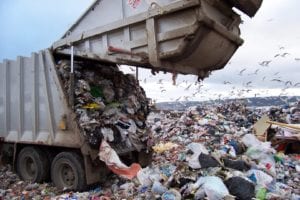The Institute of Waste Management of Southern Africa (IWMSA) has urged South Africans to reduce, reuse and recycle waste properly in support of World Environmental Day.
World Environment Day (5 June) is the United Nation’s (UN) vehicle in promoting the importance of looking after the environment. This year’s theme for WED is Small Island Developing States and the growing impact climate change has on the world’s islands. “The Institute of Waste Management of Southern Africa supports the views of the UN and its plight to reduce factors contributing to climate change. The growing environmental impact landfill sites have in South Africa needs to be addressed and every citizen can help reduce their environmental footprint,” IWMSA said in a statement. The most recent National Waste Information Baseline Report indicates that South Africa generated approximately 108 million tonnes of waste in 2011 where 98 million tonnes were disposed of at landfills. Only 10% of all waste generated was recycled during that year.According to Dr Suzan Oelofse, President of the IWMSA, landfills are among the biggest producers of methane, a gas which is 21 times worse than carbon dioxide in terms of its so-called greenhouse effect and is a contributing factor to climate change. The Greenhouse Gas Inventory for South Africa conducted from 2000 to 2010 and published in 2014 found that the total greenhouse gas emissions from solid waste disposal on land increased by 72.3% from 2000 to 2010.
“Although the use of biogas from landfills to produce electricity is a good alternative to methane emissions in the environment, it should not be used to advocate landfilling as the best waste treatment option, since the present day trend is towards waste minimisation rather than towards waste disposal,” explains Oelofse. Oelofse urges South Africans contribute to landfill waste minimisation through minimising organic waste generation, composting, and adoption of alternative technologies for organic waste management.






